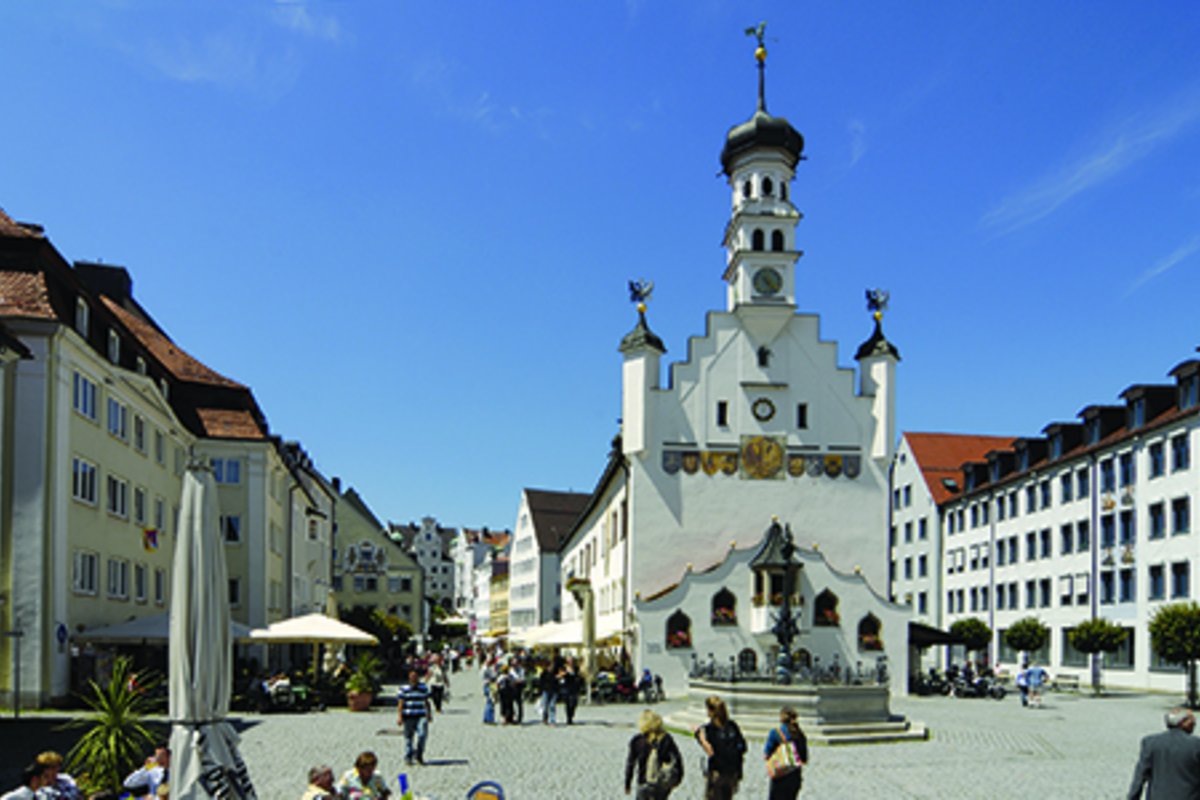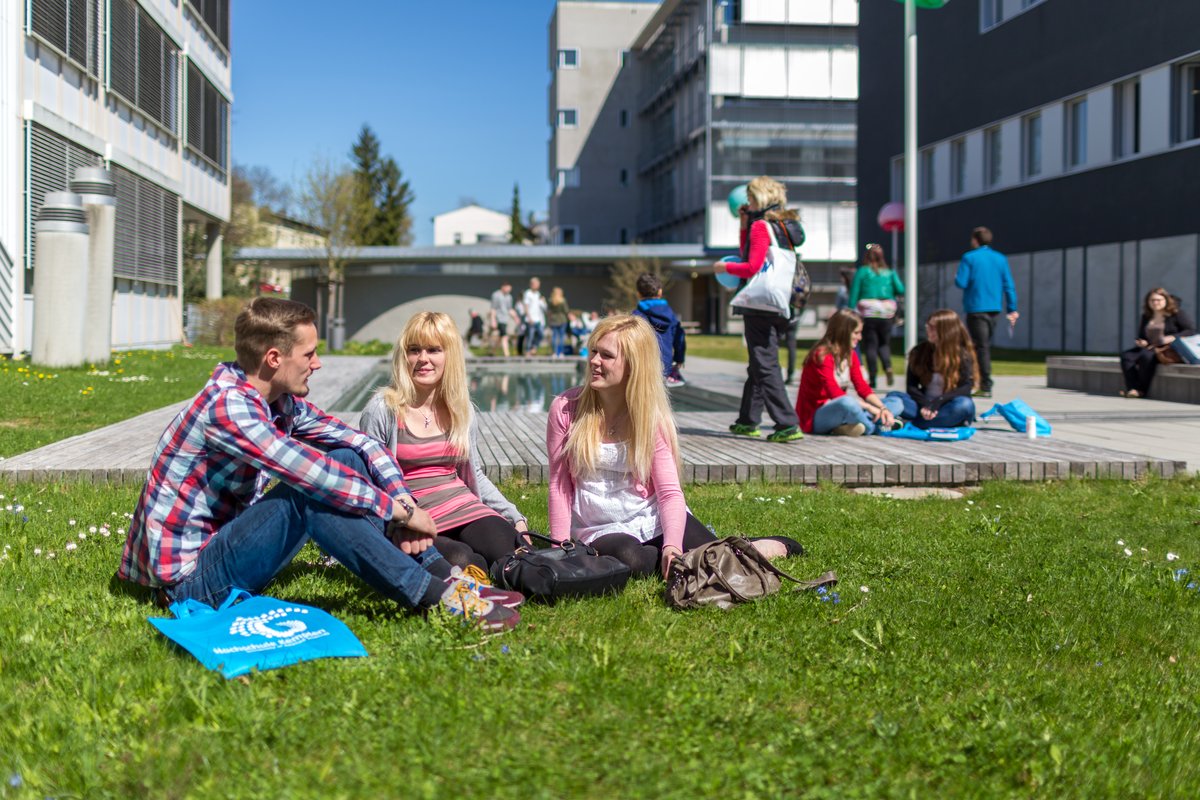
Would you like to expand your skills in the area of Global Business Development? Gain deeper insights into global expansion strategies, international market management and product development, and prepare yourself to take on a leadership role? The modules on our three-semester master’s degree programme in Global Business Development equip you with the application-focused technical and leadership acumen required to conduct international business development and management.
Over the course of this programme, you will accumulate the vital skills set for subsequently performing a managerial role in internationally operative German or foreign companies. The focus throughout is on the interplay between markets and products, processes and companies. This opens up attractive development and promotion opportunities to you, in roles such as process, project or product manager. Your master’s degree will form your gateway to senior positions in public service and leverage promotion. We will support you with efficient study groups and intensive guidance during the periods spent abroad and your master’s thesis.
Apply hereAt a glance
Award
Master of Arts (M. A.)
Study mode
full-time
Standard duration
3
ECTS credits
90
Starts
winter semester
summer semesterRestricted admission
yes
Taught in
English
Faculty
Business Administration
Study abroad
optional
Maximum number of participants
25
Accreditation
FIBAA
Details about this course
This full-time degree programme lasts three semesters, including a master’s thesis, and is worth 90 Credit Points.
The first semester focuses on the instruments product definition and development in tandem with the necessary implementation processes, before switching attention to the required framework conditions in the second. After all, besides qualified personnel, a company’s products and processes must correspond with its strategies and be suitably embedded in its corporate fabric (strategy, controlling, finance).
The programme is rounded off with the master’s thesis in the third and final semester. Successfully completing this element demonstrates your ability to work scientifically on a defined problem in the field of international business development within a set time frame and then present your conclusions in a group seminar to your peers.
The university awards students who successfully complete the programme the academic title Master of Arts (M.A.).
This master’s degree programme prepares you superbly for an international (managerial) position in all sorts of sectors.
Close links and collaboration with eminent players in industry provide a strong practical anchor, which enables students to forge personal contacts to potential employers and business partners early on. Our industrial mentor programme involves collaborations with companies such as Continental, Bosch, 3M, SAP and BMW, including – besides master’s thesis – guest lectures, field trips and collaborative lectures.
The admission requirement for this master’s degree programme in Global Business Development is a business sciences or economics degree with a “good” or better overall grade or an equivalent German “Diplom” or bachelor’s degree worth at least 210 ECTS Credit Points. You can find further details and the special aptitude process conducted for this degree programme in the Programme and Examination Regulations (“SPO”) for the degree programme or in the notes on the application process.
If you have not received your degree certificate by the time you submit your application, you can be admitted provisionally.
All the latest information and details on applying and the admission requirements can be found under Applications and admissions.
In addition, sufficient written and spoken English language skills (level
level B2 of the Common European Framework of Reference for Languages
(CEFR)) must be demonstrated. For this purpose, the following TOEFL test
(Test of English as a Foreign Language) or in the IELTS test (International English
Language Testing System) mentioned below:
- Internet-Based TOEFL Test (IBT): 75.0 points
- IELTS test: 5.5 points
All graduates of an English-language degree program are deemed to have provided this proof.
degree program. The same applies to students who, during their studies
a minimum grade of 2.5 in a regular compulsory or compulsory elective module in English.
2.5 during their studies. Proof is also the certificate of general high school
a German grammar school or a vocational or technical secondary school.
Besides conducting classes in English, we collaborate closely with the University of Ulster (UK), Lapland University of Applied Sciences (Finland) and the University of Łódź (Poland). Several of the modules involve students working together in international teams.
The master’s degree programme in Global Business Development is currently linked with 28 partner universities.
Students can opt to spend a period abroad during the third semester prior to the master’s thesis in the fourth semester. Are you interested in learning more about options for you to study abroad? More about opportunities for studying abroad.
The current service fees of Kempten University of Applied Sciences for students from non-EU countries in the English-language degree programs can be found here.
- Flyer ( 1 MB / pdf)
We compile all study programme and examination regulations centrally for you. There you will find all versions and changes. continue
Programme with extended practice
Study this Master's programme combined with in-depth practical studies! Your regular studies are combined with intensive practical phases, based on the course content. The offer is aimed at both regular, non-dual and dual Bachelor graduates who have completed a combined study programme or study programme with in-depth practice.
You can find more information about the offers here.
Modules at a glance
Module 1: International market management
Module 2: New products and services
Module 3: Leadership and culture
Module 4: Organisational development
Module section 5-7: Connecting business partners
Module 8: Process management
Module 9: Project management
Module 10: Corporate finance
Module 11: Strategic corporate planning and management
Module section 12-14: Exploring the business environment
Module 15: Master’s thesis and group seminar
Details about the course content
Module content
Module 1 – International Market Management
Successful global business development is entirely dependent upon knowing both the strategic and operational options available with regard to developing and working on international markets and the ability to leverage these sufficiently towards internationalising companies.
This module therefore enables students to formulate and apply various multinational strategies for market and business development depending on alternative framework conditions and critical variables for their subsequent business.
Furthermore, after completing this module, students will command the substantial instruments for operational market design and processing. They will have worked out that feedback effects often render isolated, national use of marketing-mix instruments inexpedient. They will be able to determine the right balance between complete standardisation and complete differentiation depending upon the global market environment and to derive and apply the appropriate instruments everyday business operations.
Module 2 – New products and services
Successful innovations and product developments are essential to companies’ survival in the face of increasingly global competition, while managing innovations is become increasingly complex. The aim of this module on “Product development” is to enable students to apply methods for developing innovative products based on theoretical approaches in practice.
Modules 3 and 4 – Leadership and culture / Organisational development
Managers’ and employees’ skills and dedication significantly influence long-term national and international business success. The “war for talent” and demographic trends in the highly developed industrial nations make leadership, emotional intelligence and intercultural skills increasingly important factors. Participants in this module should therefore be able to identify the role that leadership and managerial behaviour play in the competitiveness of a company.
In an international context, above all, sufficient active expertise is instrumental, for example, in meeting negotiation or sales targets. International corporate development and mastering the associated challenges requires the workforce and managers to be capable of tackling the wide range of organisational and intercultural issues that crop up with aplomb. The corporate strategy, management system, leadership and framework conditions need tuning to this.
Participants reach the module objectives particularly on the basis of case studies and their own presentations. This hones students’ skills in coordinating international projects, conducting sales negotiations and steering multicultural teams to success.
Modules 8 and 9 – Process management / Project management
Together with product development, the modules in process management (8) and project management (9) focus on forming a company’s individual ability to perform.
Process design plays an exceptional role in this respect. Students acquire profound expert knowledge of modelling and describing a selection of corporate processes. The aim is to enable them to identify core processes in a specific decision-making situation in business, and to model this and design it efficiently.
Students will be enabled to solve complex tasks in the cited areas under their own volition. They are capable of critically questioning approaches, driving forward solutions even without a complete information base and of arguing the case for their potential solutions towards colleagues, staff and superiors.
Module 10 – Corporate finance
The optimum business portfolio can be compiled not only by founding companies, but much rather by also buying “suitable” (to the corporate strategy) companies in addition – an increasingly significant option in our globalised world. This potential for influencing a business portfolio will be explored in the session on “Mergers & Acquisitions”, examining (monetary and qualitative) company evaluation for potential aspiring purchasers alongside the aspect of integrating new acquisitions into the corporate group. Precisely in the international context, it is particularly important and demanding to bring together companies with different structures, processes and corporate identities.
Purchasing companies is closely linked to the issue of funding, which we therefore devote a dedicated session to, being crucial to the success and survival of a business.
Module 11 – Strategic Corporate Planning and Management
If the implementation of the (above) strategy calls for founding a new company, the first step is to draw up (and evaluate) a (realistic and comprehensive) business plan – this represents the first stage of planning for the business and forms the basis for all further steps in this regard. However, the process of founding a business not only means “simply” drafting a business plan, as many aspects (e.g. the choice of legal status) must be considered and important (founding) decisions made. Particularly in an international setting, a wide range of special criteria and conditions relating to the different countries needs taking into account. The management required for the groundwork when establishing any business is examined in the session on “Start-up management Business Planning”.
The decisions taking during the start-up phase are not set in stone forever, however, but rather will constantly need adapting to changing conditions and new strategies. A continuous process of planning, steering and checking is required. This process is supported by strategic controlling, which, besides acting to provide information also coordinates and increasingly provides (in operational practice) active support for decision-making, thus making it the “internal management consultant”.
These aspects are addressed – with regard to specific (internationally typical) challenges – in the session on “Strategic Controlling and In-house Consulting”, paying particular attention to the kinds of issues that arise from an internationally chequered business portfolio.
Modules 5 to 7 (Connecting business partners) and
modules 12 to 14 (Exploring the business environment)
The aim of these courses is to deepen both theoretical knowledge and its practical application, thus preparing students rigorously for their future roles.
A manager’s success stems only partially from their technical and managerial knowledge. Key criteria for a successful career are also developing social skills and and the ability to self-manage (soft skills).
Module 15 – Master’s thesis
You can find further information on the master’s thesis in the dedicated section on this element of the course and in the Programme and Examination Regulations.
Merkblatt
For further information, please consult the Module Handbook for the master’s degree programme global Business Development .
Module Handbook
For further information, please consult the Module Handbook for the master’s degree programme global Business Development .
Examinations
Modules 1 to 14 are all assessed by examination. Detailed specifications are provided in the Programme and Examination Regulations.
The assessments for semester 3 take the form of of the master’s thesis and accompanying group seminar (“colloquium”):
Further information about examinations and the downloads for examination announcements (examiners/resources plan) and the examination schedule can be found here.
Master’s thesis
Succeeding in producing your master’s thesis demonstrates that you possess the skills to tackle a business administration problem with an international slant using scientific methods within a given timeframe and to present your work both in writing and orally.
During the series of group seminars, you will explain how your work has been progressing, the current status and any outstanding issues. The final colloquium presentation is an integral component of this module and serves to verify the authenticity and status of your master’s thesis, also enhancing its quality.
For further information, please read the relevant Info sheet.
Contacts
If you have general questions about studying, application, admission and formal aspects, please contact the General Student Advisory Service.
If you have any questions about the content of the degree programme and the course of study, please contact the programme coordinator Prof. Dr. Stefan:
katrin.stefan(at)hs-kempten.de
W109
0831-2523-621



